Several of our #DataImpactFellows are taking on new roles and joining different projects. Here’s an update on some of their movements.
Our Data Impact Fellows are all early career researchers in either the academic or charity sectors. It’s an exciting (and, at times daunting) stage where all sorts of opportunities to work in new roles and new projects come up. We know that our Fellows are a dynamic bunch and so are really pleased that they shared what’s coming up for them.
Our current Fellows
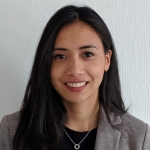 Anne Alarilla
Anne Alarilla
I’ve taken on a new role as an Insight Analyst for the Insight, Strategy and Innovation team at NHS Blood and Transplant (@NHSBT). The main role of the team is to be the voice of the donor/patients and improve their experience through data analysis and research.
However I also have a specific project working closely with the people directorate and evaluating staff’s experience and attitude towards NHSBT, particularly among the Black Asian and Minority Ethnic (BAME) groups. The aim of my project is to increase staff recruitment in BAME groups which will hopefully increase more BAME donors.
I will also be exploring how I can use the available data in the UK Data Service to assist my project. This new role offers an opportunity for me to apply the knowledge I have gained from Cancer Research UK and the insights I have gained and continue gaining as a fellow to produce impactful work.
Anne recently shared a typical day in her life (when she still worked at Cancer Research UK).
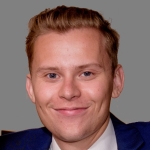 Ben Brindle
Ben Brindle
In January, I joined the Migration Policy Research Division at the International Organization for Migration (IOM), the United Nations’ migration agency, in Geneva for a six month internship.
In a role which complements my thesis about the labour market impact of immigration in the UK, I predominantly support the preparation of research papers and reports for publication on a range of migration topics, including the IOM’s flagship publication, The World Migration Report. We’re already working on the 2022 edition of the publication; I’ve been tasked with conducting background research about the key regional features and developments in migration, as well as analysing the nature of migration research.
I have also prepared talking points and panel questions for senior figures from intergovernmental organisations and national governments to use at migration conferences, and am responsible for organising seminars with migration experts from across the world.
Ben recently wrote a blog post about becoming a safe researcher.
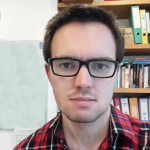 David Kingman
David Kingman
Since the end of October 2019 I have begun a new part-time role as a Senior Research and Statistical Analyst in the Demography Team within the Greater London Authority Intelligence Unit. I now typically divide my time between working 3 days each week for the Intergenerational Foundation as its Senior Researcher and spending the other two days each week in my new role within the GLA.
My new role with the GLA mainly consists of analysing data which relates to London’s population, with a particular emphasis on attempting to measure London’s population and model how it is changing over time, and communicating my analysis using a mixture of written reports and data visualisation techniques. My analysis is designed to help educate the general public and to influence decision-makers working in both central and local government as well as charities and the private sector.
What I find really interesting about my new role is the study in contrasts between working for a very large organisation in the public sector and working for a small charity. Whereas at IF I am one of only two in-house data analysts, at the GLA I am working as part of a very large team of analysts within the GLA Intelligence Unit which includes economists, qualitative researchers, data scientists, and experts in statistical modelling and geographical information systems (GIS), which provides lots of excellent opportunities for me to learn new skills. So far, I have been really enjoying the time I spend working there, and I have already learnt how to use several new data visualisation tools which I have also been able to use in the work which I do with IF, which shows that one of the advantages of having two jobs is that it creates lots of opportunities to cross-pollinate ideas between them.
David recently wrote about the challenges of learning to programme in R.
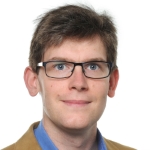 Christian Reynolds
Christian Reynolds
Christian has just started a new position at the Centre for Food Policy, City University of London. We look forward to hearing how it goes.
Christian recently told us about his experience of seeing data impact happen.
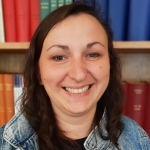 Bozena Wielgoszewka
Bozena Wielgoszewka
I started working on the Gender Wage Gap project in October. In September and October this year (covid-19 permitting), I will be in Geneva to work with Mathias Studer on the Gender Pay Gap Project, using the methodology developed by Bolano and Studer.
Bozena shared a fantastic post about the day of her PhD viva.
Previous Fellows
A few of our earlier Data Impact Fellows (who we still consider part of our ‘family’) have had some changes:
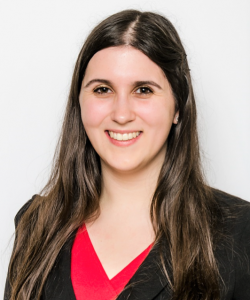 Esmeralda Bon
Esmeralda Bon
I recently took up a (currently part-time) post of Research Associate at the University of Manchester (Cathie Marsh Institute), while I complete my PhD dissertation. I am very excited to be working on the DiCED project:
Digital Campaigning and Electoral Democracy (DiCED). DiCED is a major new comparative project that will study the drivers and effects of digital campaigning in 5 countries and 7 national elections during the period 2020-2023. It will use an exciting mix of social and data science methods to investigate questions about the rise of a new form of ‘data-driven’ campaigning (DDC) within new and established democracies. Specifically, it will look at how far are digital and data-related innovations are fundamentally changing how campaigns are run, who runs them, and what their effects are on voters, parties and democratic systems more generally. DiCED is led by Professor Rachel Gibson and will be delivered by a team of country, methodological and data management experts from the UK, Germany, France, Poland and the U.S. The project will draw on a range of established and newer cutting-edge methods and data that will allow for unique insights into how and where data-driven campaign practices such as micro-targeting, are being deployed. This will include the use of online surveys, interviews and experimental methods, as well as techniques drawn from AI, computer and data science such as natural language processing and topic modeling.
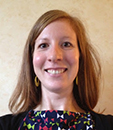 Sarah Knight
Sarah Knight
Whilst still completing my PhD, I am now working part-time as the Participatory GIS Technician for the PERICLES project. PERICLES is an EU-funded Horizon 2020 research and innovation project running until 2021. The project promotes sustainable, participatory governance of cultural heritage in European coastal and maritime regions. The project has 11 partner organisations across Europe and studies 8 case regions (the Aegean Sea, Brittany, Denmark, Ireland-Scotland, Estonia, Malta, Portugal, and the Wadden Sea).
My role at the University of York is to manage the project participatory online mapping portal. The portal is a key part of PERICLES, used by each case region to capture the tangible and intangible maritime cultural heritage from local stakeholders. I use my experience in data management, visualisation and spatial analysis to help design the portal and maintain primary and secondary data content. I am also involved in dissemination and exploitation activities, as well as the analysis and reporting of the outcomes of the data collected.
Ultimately, the portal provides a platform for the crowd-sourcing, public participation and engagement in cultural heritage data collection, creating new information relating to the location, description, and the human values associated with maritime and coastal cultural heritage across eight case regions in Europe.
PERICLES places impact at the heart of its work. Co-creation and co-designing are key notions, allowing a multitude of stakeholders to work together. Recognizing the value and richness of local and regional stakeholders and citizen voices, the project uses an engaged, participative approach to both data-gathering and the co-production of a sustainability framework that places local lives and livelihoods centrally in the cultural heritage of land- and seascapes.
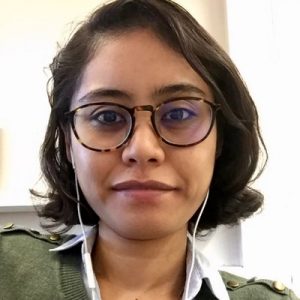 Aishah Selamat
Aishah Selamat
I cleared my Ph.D. viva in September 2019 and working towards submitting my final thesis in March 2020. Career-wise, I am excited to share that I will be joining Dyson as a Commercial Data Product Manager based at its Malmesbury Campus this March . I will be working within the Global Data Service team to advocate the use of Data in the organisation. Looking forward to transitioning to a role that I am majoring in and have a deep passion for!
In 2019, I was awarded the Tier 1 Exceptional Talent by UK’s Home Office and Tech Nation.
Congratulations to all our #DataImpactFellows on their exciting next steps in journeys.
We’ve asked them to share what change means to them, so look out for their blog posts over the next few months!
